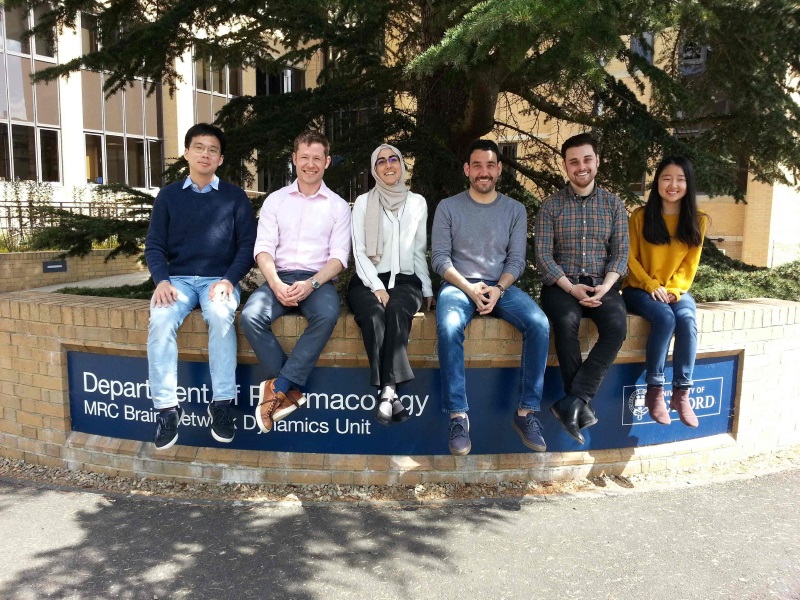We are pleased to welcome a new Associate Editor to the Open Biology editorial board. Newton International Fellow Ricardo Marquez Gomez is from the University of Oxford and recently started his term in July 2019.

We are pleased to welcome a new Associate Editor to the Open Biology editorial board. Newton International Fellow Ricardo Marquez Gomez is from the University of Oxford and recently started his term in July 2019. We asked Ricardo a few questions about his background, current research and motivation behind joining the journal’s editorial board.
Tell us about your field of research?
My research focus is in understanding brain development and the participation of neuromodulators in this process. More specifically, I study the development of connections between the cortex and the striatum, two brain structures that have been related to the appearance of tic-related disorders, such as OCD, autism or Tourette’s syndrome. On the neuromodulator side, I look at histamine, because the synthesis of this neuromodulator has been shown to be decreased in patients and animal models of tic-related disorders. My research then aims to understand how the lack of histamine affects the formation of important connections between the cortex and the striatum, leading to the early appearance of tic-related disorders.
What prompted you to work in your field?
Tic-related disorders like autism, OCD or Tourette’s syndrome are a big issue for public health worldwide. To cite some numbers, according to the WHO, 4.2% of the UK population suffered from OCD (that’s more than 2.5 million people) up to 2017. This made OCD the 5th leading cause of non-fatal health loss and appears in the top 10 causes of years lost to disability. So, there’s no doubt that mental health is a topic that needs to be addressed. However, tic-related disorders usually remain on the backstage of research and public health policies, while other brain disorders like Parkinson’s or Alzheimer’s diseases take the main stage.
In addition to the public health impact, these disorders have another important and determinant side: they tend to be present since the beginning of life. This means that patients are born with these disorders and therefore, whatever is malfunctioning in their brain, had to be established before they were born or very early in life, when the brain experiences its highest synaptogenic period. Despite this, most of the research aims to understand tic-related disorders in adult patients and animal models.

So this is what brought me into my field of research. To understand the neuronal origins of these disorders, so then we may propose an early therapeutic intervention to alleviate the symptoms.
Why did you join the Open Biology Editorial Board?
I decided to join the board because this is a great opportunity to get an insight into the publishing process. As researchers, publishing is one of the most tangible results we get from our time spent in the lab. How papers are selected, scrutinized and accepted (or rejected, in the worst case) are stages of the publishing process that we usually contemplate from the outside, patiently waiting for them to deliberate the future of the paper. So this is a chance to learn about the whole process from the inside. In addition, Open Biology publishes a wide variety of topics, so this is also an opportunity to learn about other topics and possibly establish future interdisciplinary collaborations. Finally, this is a chance to expand my horizons in a branch of science, which may not be behind a lab bench, but is a crucial part of putting all the hard work of scientists out to the public.
What advice would you give to someone who wants to submit to the journal?
One of the most valuable things when publishing, is to be honest with the limitations of the study. This means, to have a good discussion about what the research actually means and how much is this contributing to increase the knowledge in the specific field of research. Since one of the main goals of the journal is to publish high quality and ground breaking discoveries, the advice will be: be honest about the results and don’t try to oversell them. Try to go deep into what the article results are saying, and discuss the flaws and future directions.
Images:
Ricardo Marquez Gomez portrait © 2019 Department of Pharmacology, University of Oxford
Tommas Ellender Lab Group © 2019 Department of Pharmacology, University of Oxford
Open Biology is looking to publish more high quality research articles across cellular and molecular biology. Find out more about our author benefits and submission process.




